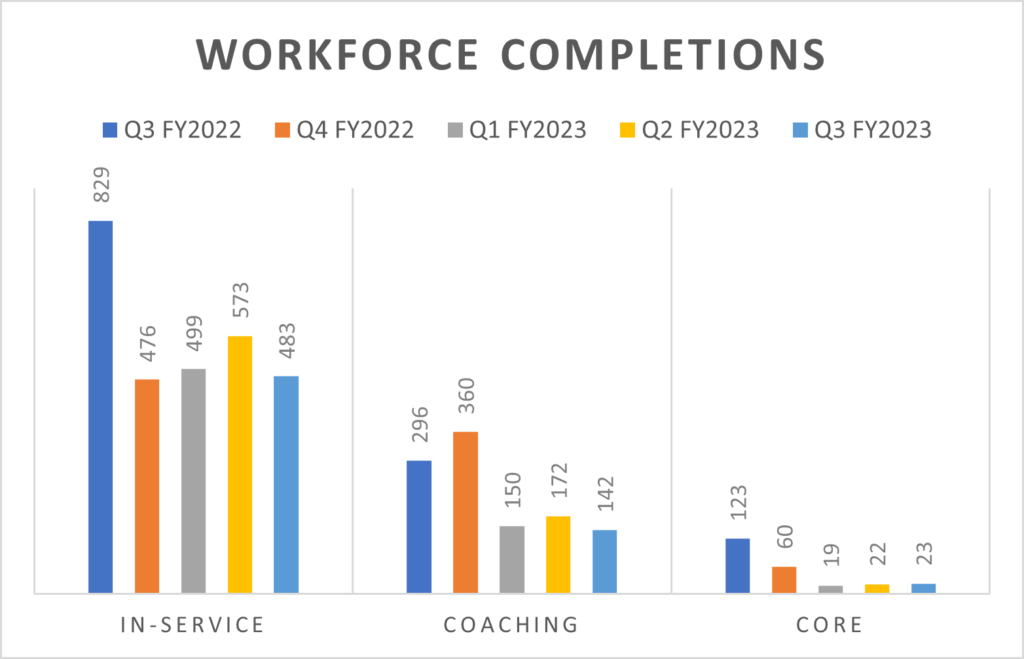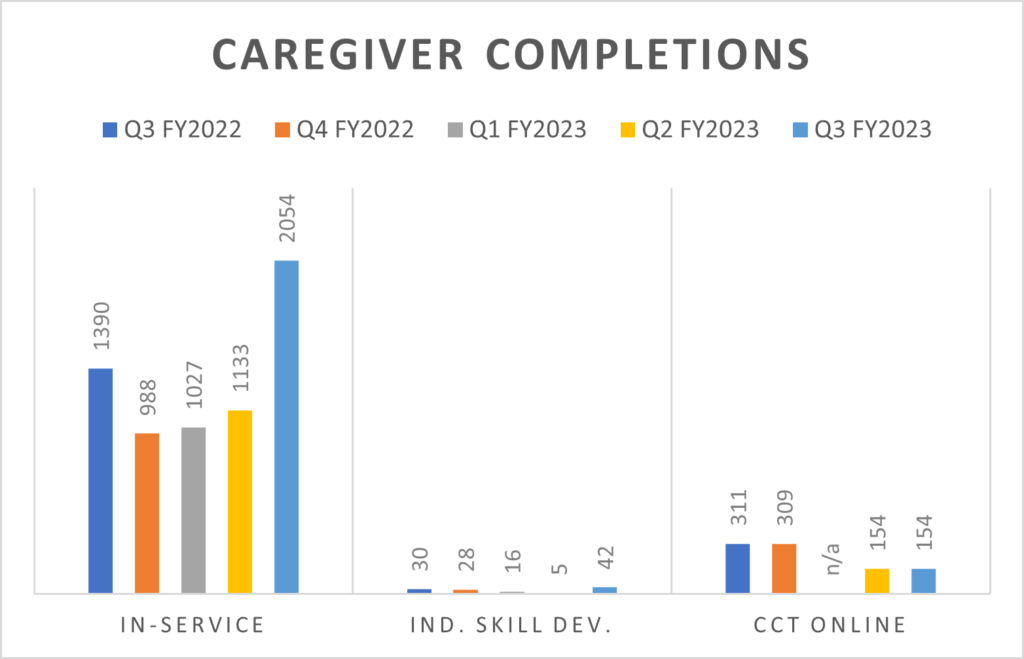Quarterly Report_Q3 FY2023
Program Updates
Area Administrators Summit
The Alliance hosted this year’s Area Administrators Summit on March 22 at Cedarbrooke Lodge.
- The daylong conference was the first in-person event since 2019.
- General session topics included change management, collaboration across disciplines, and a look at advancing racial equity in DCYF.
- Workshop topics included a primer on safety for supervisors, a discussion of goal-setting, and a look at the Family Practice Model.
By the Numbers
“Advancing Racial Equity & Social Justice at DCYF”
— Highest-rated session, with speakers Carol Byers and Ray Soriano
“A great reminder of the importance as a leader to remind our staff of the resources available to them.”
Attendee feedback
'Supporting Children's Mental Health in Child Welfare' launches
The update for the course “Supporting Children’s Mental Health in Child Welfare” was launched in February 2023.
This update was created in response to a request from DCYF’s Mental Health Program Manager asking for the course to provide more in-depth strategies to support children’s mental health.
The new version includes content updates including a focus on trauma and toxic stress, and is co-facilitated with a community mental health practitioner. It was increased from a three-hour training to two four-hour sessions.
The course focuses on childhood mental health, including common symptoms and screenings, assessment, effective interventions, and ways to engage children, caregiving adults, and professionals. The participant’s role of child welfare caseworker provides the lens through which these topics are explored
Updated content includes discussion of ways to engage with adults in caregiving roles and the children they care for, in order to gather more information about their children’s functioning, and to engage them in seeking and continuing treatment. The course also covers working with mental health professionals to understand their treatment approach and to assess whether the intervention is having a positive impact. There is also content around the role of resilience, and ways to support resilience for the children and families practitioners work with.
Training Summary


* A unique learner is each individual learner who has taken any class this quarter, whereas the total number of learners will count a learner each time for each course they complete. The number of unique learners includes eLearning learners.
